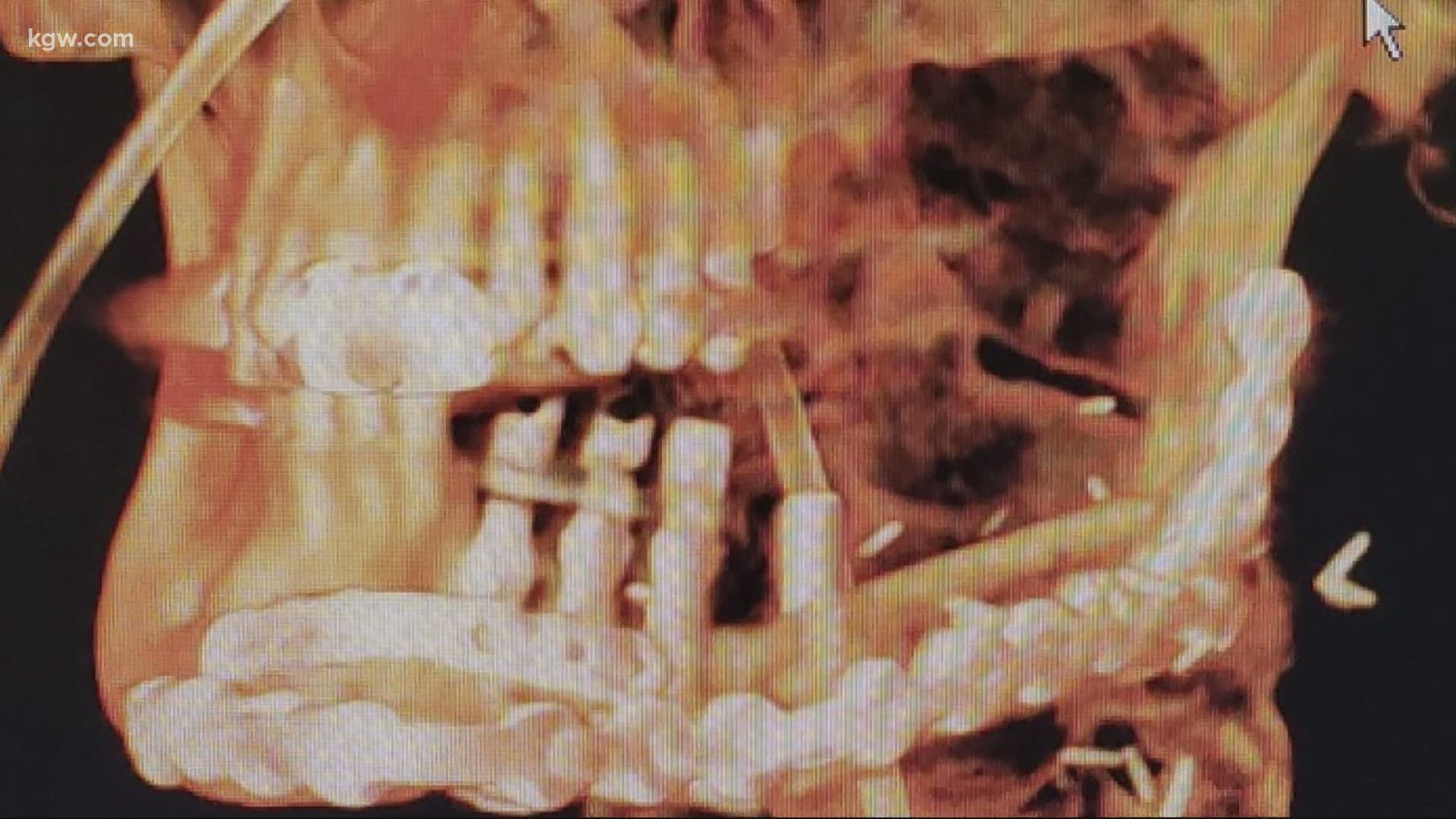PORTLAND, Ore. — Terry Sambrailo is strolling into the new year with a new perspective on her health.
“The worst is all over now, it’s behind me,” she said.
Sambrailo lives in Idaho but is staying with friends in Hillsboro while she recovers from a first-in-Oregon procedure for oral, head and neck cancer patients.
“I think it’s wonderful and I’m just fortunate that I was a good candidate for it,” Sambrailo said.
The 74-year-old was diagnosed with cancer in her left jaw last year. It started with a toothache.
“And then another toothache and that’s when we finally did the biopsy and we found out it was more than just tooth. It was the cancer in the bone,” she said.
She found a team of specialists and surgeons working through Providence Cancer Institute in Portland with an innovative new procedure called "Jaw in a Day."
“It took a heck of a team to do it,” Sambrailo said.
Leading that team were Providence head and neck oncologic and microvascular reconstructive surgeons Ashish Patel, M.D., D.D.S., and Baber Khatib, M.D., D.D.S., F.A.C.S.
“I think for lack of a better medical word, it is really cool,” Dr. Khatib said. “The technology behind this is phenomenal.”
A diagnosis of oral, head or neck cancer can mean a series of surgeries to remove the tumor, rebuild the jaw and teeth and then implant new teeth. That can take one to two years.
During the process, the patient has no teeth for six months to a year. Not only does this severely affect their ability to talk and chew, but also their mental health and ability to interact with others.
“One of the devastating things with oral cancer is that – not only does it require this large removal of the area of the cancer, but this can affect the way patients look, speak, interact with people afterwards, and this is a lifelong, what used to be a disfiguring type of surgery,” Dr. Khatib said.
The "Jaw in a Day" procedure can accomplish what used to take about a year in a single day. The patient undergoes a complex procedure that removes the tumor, rebuilds the jaw using the patient’s fibula (calf bone) and implants new teeth within hours.
“I was able to use these cutting guides on the fibula, cut it into a shape that looked pretty natural to what her original jaw looked like and then put in these dental implants all at the time of the surgery,” Dr. Khatib said. “Being able to give them teeth does more than just give them a smile, which is a pretty significant thing in itself, but it offers them an ability to chew, to swallow and articulate so much better.”
Providence has used this procedure before on non-cancerous tumors, but now it is available for patients like Sambrailo. She was the first patient on the West Coast to receive it for her cancer treatment.
She’s still recovering and will need restorative dentistry in the months ahead but is excited about her prognosis.
“Your body, at 74, doesn’t turn around real fast,” Sambrailo said. “But I probably saved nine months to a year, rather than having it the old way.”
Learn more about oral, head and neck cancers and the latest treatments at Providence here: providenceoregon.org/hncancer

